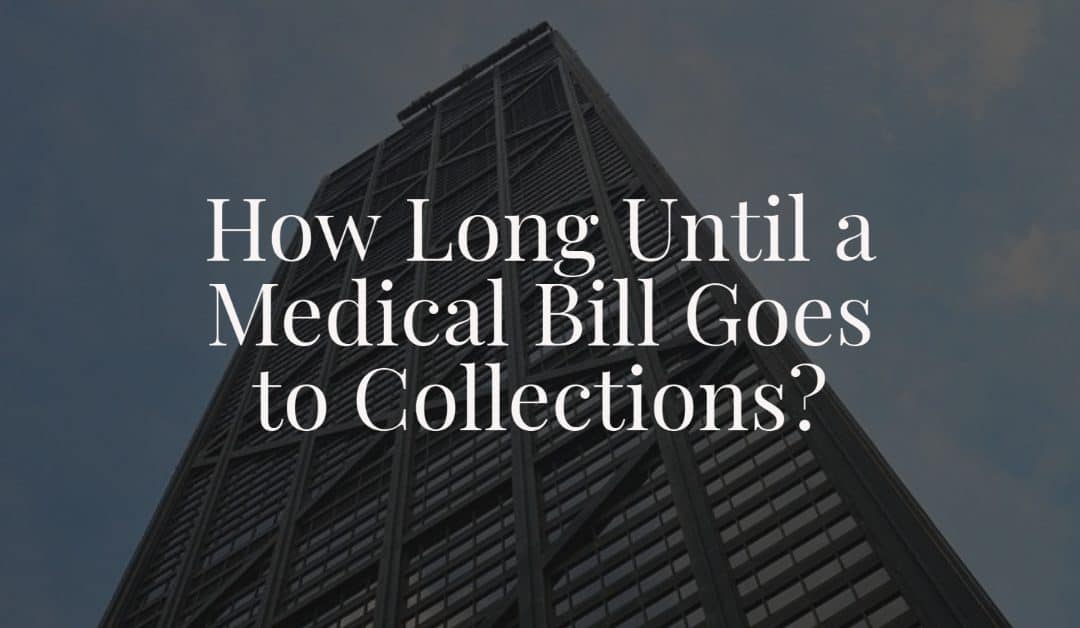How Long Until a Medical Bill Goes to Collections?
First off, you are not alone if you have medical debt. According to the Consumer Finance Protection Bureau, 52% of collections are medical debt. Sometimes it can feel embarrassing to have medical bills that you can’t pay but there are millions in your position.
Last year alone, it is estimated that out of pocket medical expenses topped $300 billion in the US. That is a significant amount of debt. If you don’t pay your debt in a timely manner, the debt will go to collections. But how long does that take?
Why Does My Bill Get Sent to Collections?
Most medical providers will give you ample time to pay before sending your bill to a collections agency. They hope to receive the full amount of what you owe. They will send you many bills and have representatives from their billing department contact you several times before they resort to other measures. If they do not receive your payment, eventually they will decide to sell your bill to a collection agency.
Medical Providers Negotiate with Credit Collection Agencies
Selling your bill involves receiving less than the full amount of payment. The collection agency only pays a partial amount of the full bill to your medical provider. Your medical provider does not want to share the profit that they could make if you paid your bill.
According to Medical Billing and Coding guidelines, If the patient is delinquent in their payment, or if they do not pay the full amount, it is the responsibility of the billing department to ensure that the provider is properly reimbursed for their services. This may involve contacting the patient directly, sending follow-up bills, or, in worst-case scenarios, enlisting a collection agency.
If they decide to sell your bill to a collection agency, your medical provider will not contact you again about the payment.
Collections Begin
The truth is that a medical provider can sell your debt to a collector at any time. They are within their rights to do so whenever they choose. Common reasons medical providers send debt to collections include if you don’t pay a bill on time or have entered into an agreement to pay a certain amount each month but don’t.
If they no longer expect you to pay them, the medical provider will generally choose to sell your bill to collections. Each provider has it’s own set of guidelines and timelines when it comes to bill payment, notifications, and collections.
Collection Agencies Under the Law
Once the medical provider has sold your debt to a collection agency, the collection agency must wait 6 months, or 180 days before reporting medical debt to your credit report. This provides you time to pay off your debt before it goes onto your credit report.
What You Should Know
A report by the CPFB in May 2014 found that “the presence of medical collections on a credit report is less predictive of future defaults or serious delinquencies than the presence of a non-medical collections.” This means that future creditors may look more favorably on a bad credit report that results from medical debt.
Secondly, the IRS is developing rules governing nonprofit hospital billing and collection policies. If you have outstanding medical bills from a nonprofit hospital, ask them to explain their billing and collection policies to you. They are required to do so by law.
Don’t Ignore It
You should never ignore a medical bill. If you are unable to pay it immediately, talk to your provider and let them know that you are willing to work with them in any way to get it taken care of. They can tell you about payment plans, medical credit cards, and any other options they have available for you. Many medical providers are open to negotiations about the bills they send out. Insurance companies may also be open to negotiation to pay more of your bill.
Seek Wise Counsel
If a collections agency is calling you or harassing you about medical debt, you should know that there are laws governing this behavior. An experienced and knowledgeable attorney can help you understand what your options are if your medical debt reaches this point. There are ways to negotiate with collection agencies and get out from under the debt. Medical debt is a heavy burden but there is no need to go through this alone.

